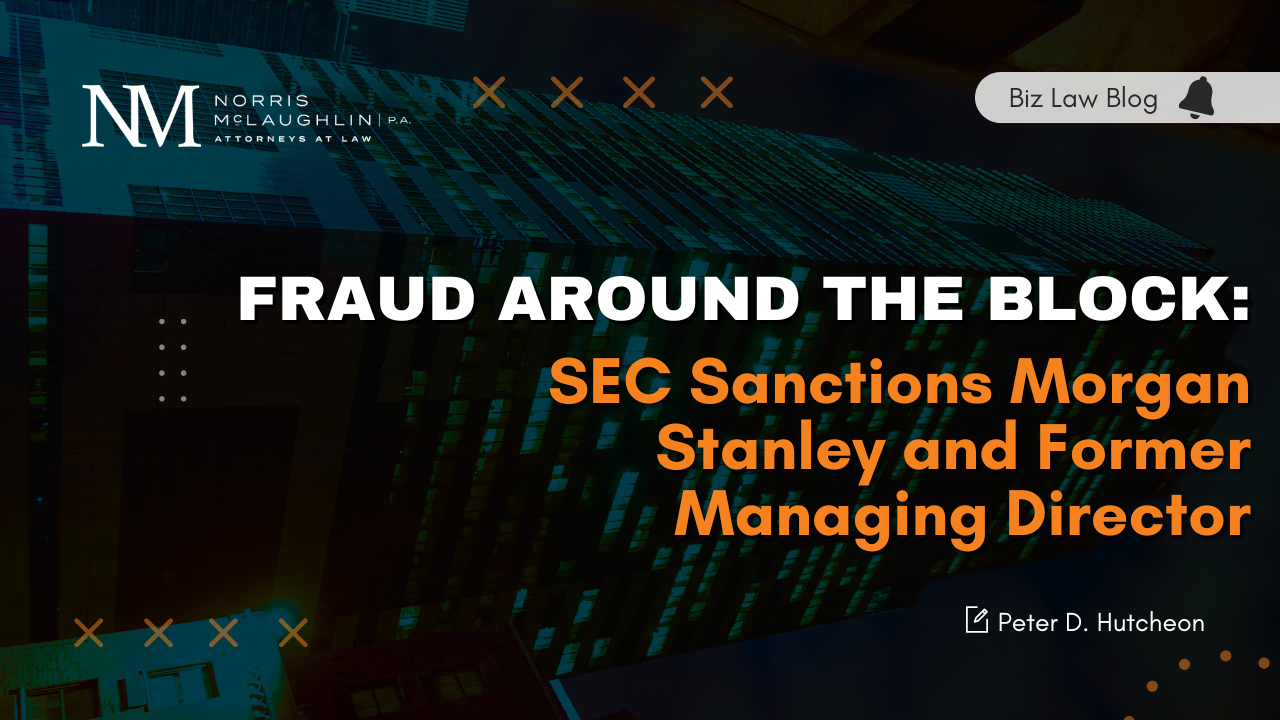General Partnership Interests Are Securities – Sometimes: The 5th Circuit Revisits Williamson
In 2016, the United States Securities and Exchange Commission (“SEC”) brought a civil suit in the United States District Court for the Northern District of Texas, Dallas Division, against Arcturus Corporation, a Texas corporation (“Arcturus”); Aschene Energy LLC (“Aschene”), a Texas limited liability company; and Leon Ali Parvizian, a U.K. citizen and permanent U.S. resident, who was the founder and owner of each entity. From 2007 through 2011 the entities and Parvizian offered and sold ownership interests in six oil and gas well drilling projects. The District Court decision SEC v. Arcturus Corporation, reports that each project had a “Managing Venturer” that supervised and managed that project and received “Management Fees.”
The SEC asserted that the drilling projects were securities, not joint venture interests where all the venturers were involved in the manager’s ventures. The defendants countered that the joint venture interests came with powers, rights, and liabilities and management obligations. In a 25-page, carefully reasoned decision Judge Kinkeade of the District Court concluded that the SEC enforcement action brought in 2013 was well-founded based on the definition of “security” in both the Securities Act of 1933, as amended (the “1933 Act”) and the Securities Exchange Act of 1934, as amended (the “1934 Act”). The District Court found that the term “security” includes “investment contracts” (a term neither separately defined nor explicated in either the 1933 Act or the 1934 Act). However, in SEC v. W.J. Howey Co., the United States Supreme Court supplied the missing definition of “investment contract” as a type of “security:”
… a contract, transaction or scheme whereby a person invests his money in a common enterprise and is led to expect profits solely from the efforts of a promoter or a third party.
The District Court also cited with approval Williamson v. Tucker, for the proposition that interests in business entities, although they might be called general partnership interests, may well be securities for purposes of Howey if there is a dominant, managing partner, even though the other investors have some power and rights with respect to managing the efforts of the entity.
Here the abstract metaphysics of the relationships among the parties come into play. In a corporation, a limited partnership, or a manager-managed limited liability company, there are the relatively passive investors (shareholders, limited partners, non-manager members); and the active managers with the actual and apparent authority to run the enterprise. In contrast stands a general partnership, where all partners are more or less equal, especially in management authority. Hence, a general partnership interest is not necessarily or even typically securities – unless the Animal Farm[1] rule applies, i.e., some general partners have much greater power and/or control of the information so that the other “general partners” are seen more like relatively passive investors.
The Williamson Court had previously looked to the experience of the putative “general” partners and their dependence, if any, on the management skills and authority of one or more partners.
Applying these Williamson factors to the facts in Arcturus, this latter-day Fifth Circuit panel found that the defendants had raised genuine issues of material facts entitling them to a new trial.
For a full discussion of the case, see our client alert, “New Jersey Proposes Fiduciary Duty Rule for Broker/Dealers and Investment Advisors.” If you have any questions about this post or any other related matters, please feel free to contact me at pdhutcheon@norris-law.com.
[1] Animal Farm, by George Orwell (1945). “All animals are equal but some are more equal than others.”




